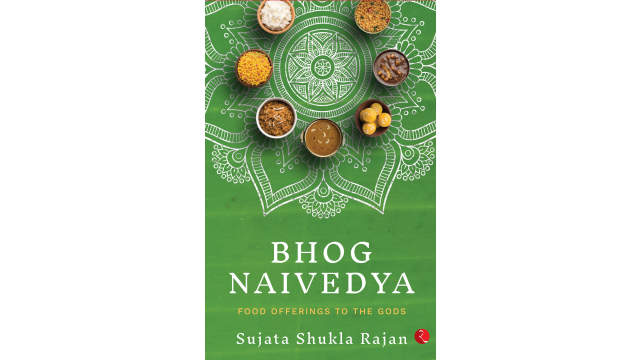Practicing Gratitude with Food

Whether it’s noshing at cozy holiday gatherings, sharing a food-laden table with loved ones, or simply dining solo, one thing makes a meal truly special: gratitude. Food plays an important role in expressing gratitude, a tradition of giving thanks that is present in cultures across the world. As Elizabeth Aong, an integrative and functional dietitian in California, writes, “if you are interested in cultivating more gratitude in your life, try focusing on mealtimes.”
Gratitude Matters
Etymologically, gratitude is traced to the Latin word gratus, which can mean “grace” or “gratefulness.” Gratitude allows us to see value, virtue, and benefit in everything.
We’ve learned from positive psychology that cognitive factors play a part in how much gratitude a person feels at a time. According to Harvard Health Publishing, gratitude is a scientifically backed practice that boosts happiness and can have lasting effects on emotional wellbeing.
Robert A. Emmons, Ph.D., a professor of psychology at the University of California, Davis, and one of the leading researchers of gratitude, found that people who kept a gratitude journal for just a few weeks reported feeling more optimistic with their lives. Practicing gratitude regularly can better mental health, boost happiness, reduce stress, and even improve physical health.
People who practiced gratitude showed a significant increase in wellbeing, compared to those who didn’t engage in such positive social exercises. Nadia Mahmud, a registered dietitian nutritionist at Roundglass Living, explains, “One way gratitude improves our wellbeing is that it can help significantly reduce levels of cortisol—the stress hormone—which helps lower inflammation and risk of chronic disease.”
When we express gratitude, our brains release dopamine, the feel-good chemical responsible for mood elevation. This chemical reaction boosts our emotional state and makes us feel cheerful and positive. Expressing gratitude has also been linked to oxytocin, the love hormone. The release of oxytocin in the brain further nurtures feelings of connectedness and happiness. According to Mahmud, “being thankful can actually change our brain chemistry and boost happiness by helping the gut bacteria responsible for producing serotonin and dopamine thrive.”
Gratitude and Food
One of the universal ways we express gratitude is through food. Research has shown that expressing gratitude can impact our relationship with food, encouraging healthier choices and fostering a more mindful approach to eating.
“Holidays are full of food traditions, and whether elaborate or simple and homey, these meals are the memories we take with us through the next year,” writes Tara Bench, a recipe developer and the author of Delicious Gatherings: Recipes to Celebrate Together.
Across cultures, food—especially on holidays—remains a way to express gratitude. Take, for example, Thanksgiving in the United States. The tradition of gathering around a table laden with turkey and mashed potatoes is about coming together and giving thanks for the harvest, for family, and for the simple joys of life and a spirit of thankfulness through giving and sharing meals together.
In India, festivals like Diwali are marked by sharing sweets with loved ones and offering thanks to the goddess of prosperity; Pongal is marked by partaking of dishes that celebrate the bounty of the harvest and giving thanks to the farmers. The Mexican celebration of Día de los Muertos involves offering food to honor the dead, a meaningful way of keeping their memory alive.
In the Mediterranean, meals are often a way to not just bond with family and friends but also express gratitude for good health—while enjoying good food. In Jewish tradition, food is central to Shabbat, where the act of sitting down for a meal together is a mindful expression of thanks.
In Islamic tradition, fasting during the month of Ramadan is a way to foster gratitude for food by temporarily experiencing hunger during the day. The iftar meal, traditionally held to break the fast in the evening, is often celebrated in community settings, emphasizing the joy and gratitude of nourishing our bodies through shared food and togetherness.
Showing Gratitude, the Mindful Way
Whether they are holiday meals or home dinners for friends and family, these repasts can run the danger of becoming indulgent feasts full of ultra-processed foods and excess sugar. It's important to honor our gratitude for food in a mindful and more balanced way. We can both enjoy these traditions and nourish our bodies by making healthy, whole foods choices and drawing up balanced menus. Here are some ways to incorporate wholesome ingredients into your meals:
- Swap refined grains for whole grains in stuffing, breads, and desserts. Use oats, whole wheat, barley, spelt, buckwheat flour instead of all-purpose flour.
- Choose naturally sweetened treats with fruits, nuts, and spices instead of processed sugars. Use whole food sweeteners like dates, bananas, honey, maple syrup, coconut sugar, or applesauce.
- Incorporate more plant-based fats like olive oil, avocado, nuts and seeds like walnuts, almonds, chia, and pumpkin seeds for satiety and heart health.
- Balance indulgent dishes with fiber-rich, colorful vegetables that enhance digestion and overall wellbeing like Brussels sprouts, sweet potatoes, or cauliflower.
A Platter of Gratitude Tips
Science has shown that food and gratitude are vital to boosting mood. Research suggests that food choices can influence our mental state. While ultra-processed and fast foods give short bursts of energy but leave a negative impact on health, meals rich in omega-3 fatty acids (found in plant foods, like walnuts, flaxseed, and chia seeds), antioxidants (found in colorful fruits and vegetables), and whole grains have been shown to boost brain function and reduce symptoms of depression.
Here are some mindful ways to introduce gratitude over food.
Gratitude plate. Before you eat, take a moment to feel grateful for a person, place, or thing and the meal you are about to have.
Gratitude chain. At the next sit-down meal, go around the table and ask each person to name one food-related person, place, or thing that they are grateful for.
Thank-you notes. Whether in a journal or through a note, express your thanks for a meal, a person who cooked or shared a meal, or an ingredient, and how that made you feel.
Mindful eating. It takes about 20 minutes for the brain to register that the stomach is full. Therefore, slowing down eating is not just a healthy way to enjoy food and avoid overeating but also a way to show gratitude for every bite.
Food is a universal symbol of thanks. Be it the holiday season or not, always remember to savor the flavors on your plate with gratitude in your heart.
Key Takeaways
- Gratitude boosts mental health.
- Food unites us in giving thanks.
- Mood-boosting meals nourish us.







